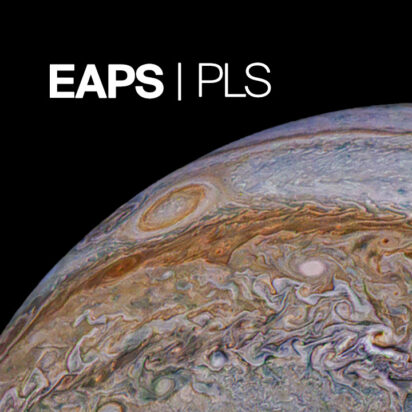
[PLS] Brynna Downey (UC Santa Cruz)
Date: Tuesday, March 5, 2024 Time: 12:30 - 1:30pm“Evolution of the Moon’s orbital inclination”
The Moon’s orbit is currently inclined despite having formed on a zero-inclination orbit after the Moon-forming giant impact. Various theories have been proposed to explain why the Moon’s orbit is inclined. We test the viability of these theories by reconstructing the thermal–orbital history of the Moon. In particular, we include tides in the lunar magma ocean, which increases inclination damping, and the effect of a fossil figure, which records the Moon’s orbital state at an earlier point in time. We find that an early inclination is preserved only if the solid-body of the early Moon were less dissipative than at present. If instabilities at the Laplace plane transition were the source of the inclination, then the Moon had to recede slowly, which is consistent with previous findings of a weakly dissipative early Earth. If collisionless encounters with planetesimals up to 140 Myr after Moon formation excited the inclination, then the Moon had to migrate quickly to pass through the Cassini state transition at 33 Earth radii and reach a period of limited inclination damping. The fossil figure was likely established before 16 Earth radii to match the present-day degree-2 gravity field observations.
[PLS] Planetary Lunch Seminar
Colloquia topics span the range of research interests of the department’s planetary sciences research program, and the talks are intended to appeal to any graduate students, postdocs, research scientists, and faculty with a background in planetary science. Speakers include members of the MIT community and visitors.
Contact: planetary-org@mit.edu.
